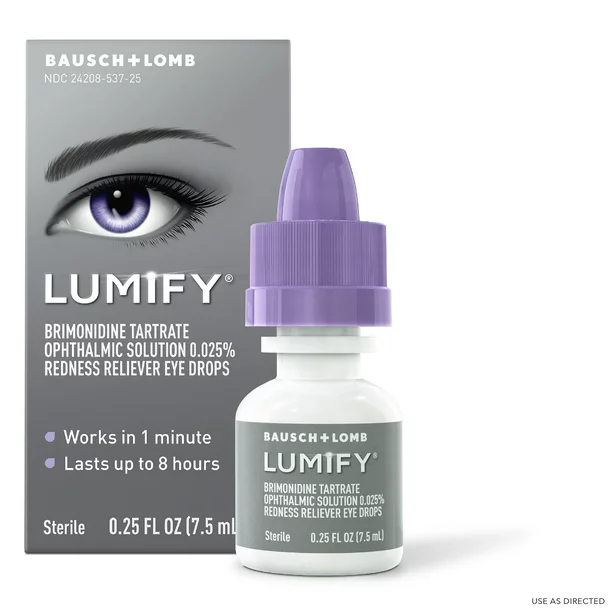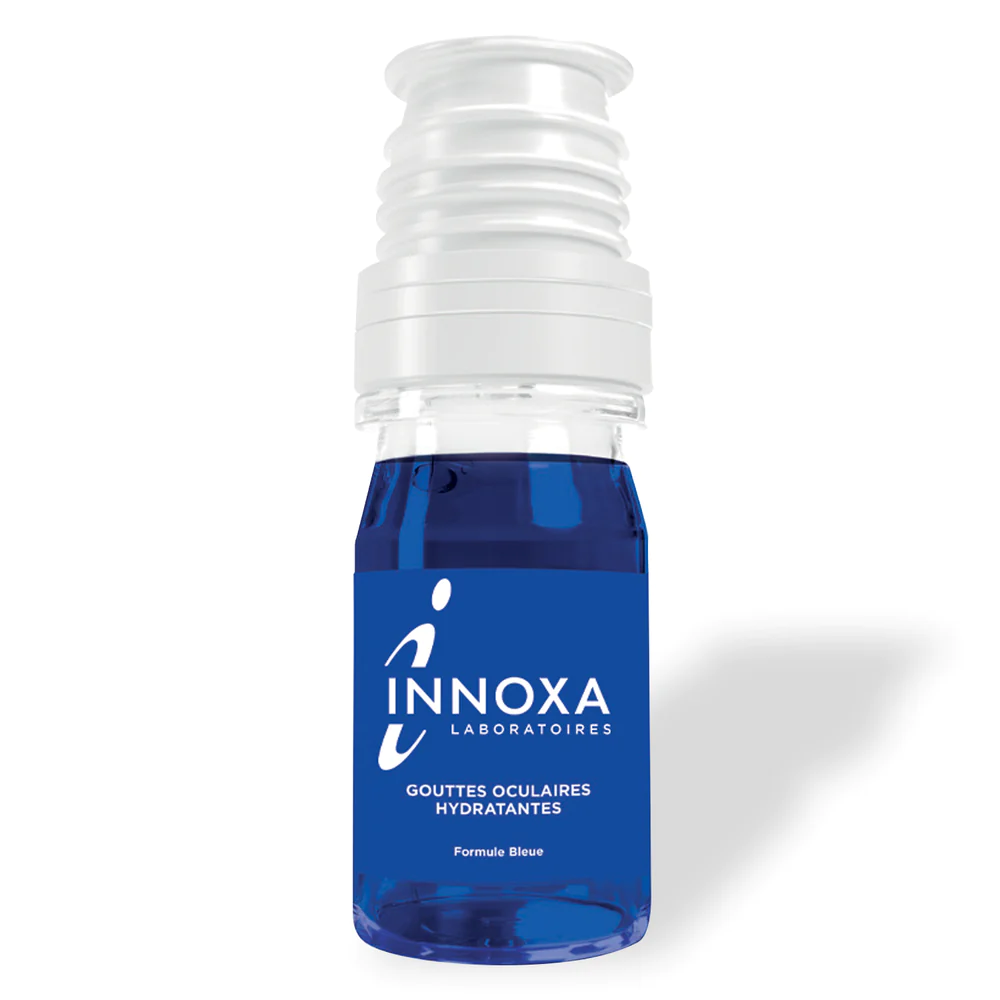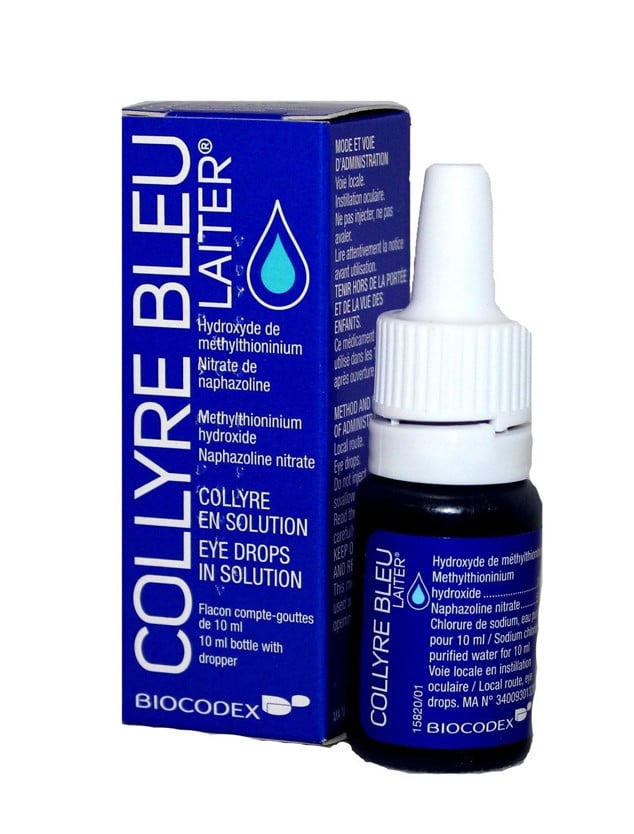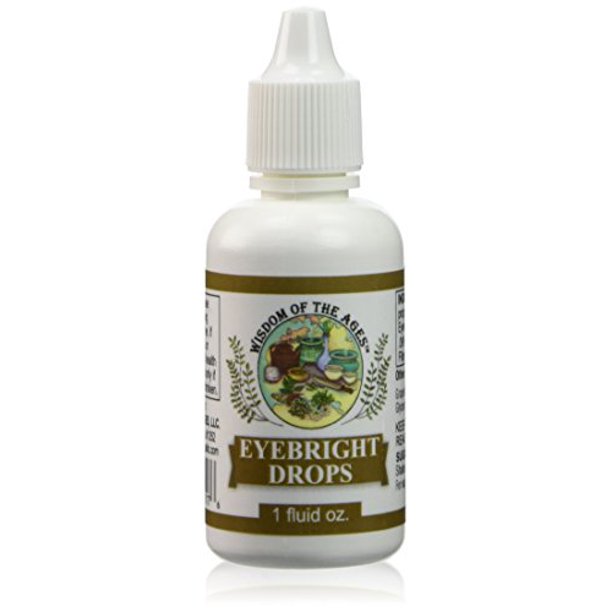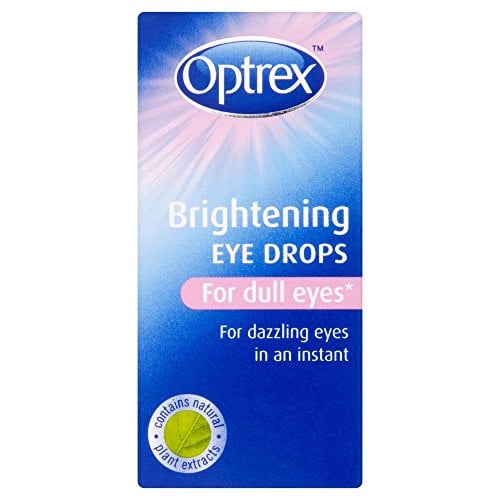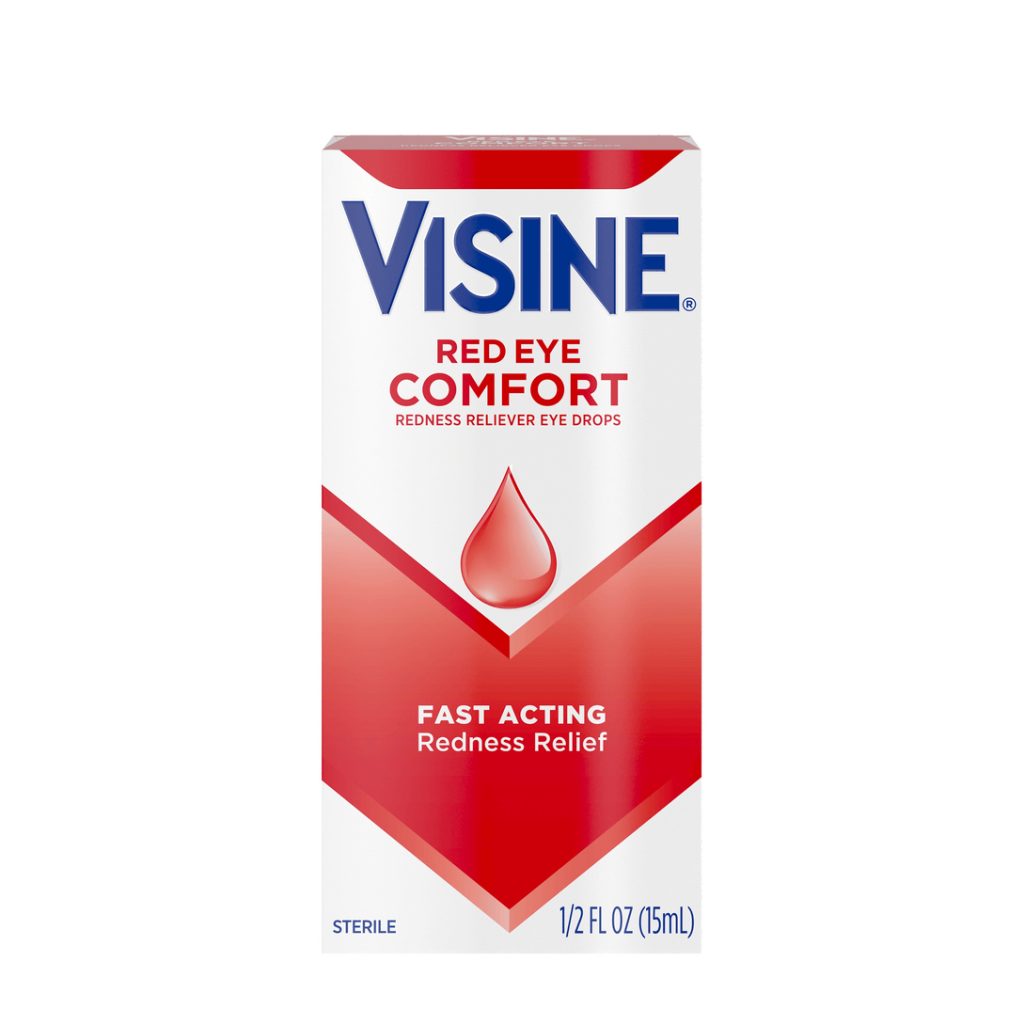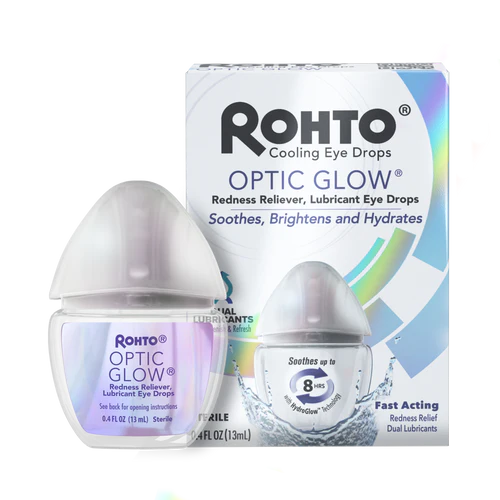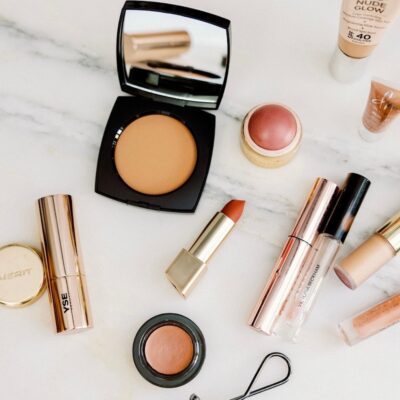We may receive a portion of sales if you purchase a product through a link in this article.
Don’t tell my esthetician, but I’ll try pretty much anything for my skin. I’m easily intrigued by the products my favorite content creators and trusted beauty editors swear by. So I’ll slather new, shiny serums and exfoliants all over my skin, just because of a viral trend. But when it comes to anything that’s ingestible or internal, I’m way more cautious. From reading the labels at the grocery store to limiting my caffeine intake, I do it all. When it comes to wellness, a healthy dose of skepticism is essential. So when I caught wind of eye whitening drops, I knew I needed to know more. For answers, I spoke with Dr. Inna Lazar, OD, founder of Greenwich Eye Care and Dry Eye Spa—aka, @eyeballdoc on TikTok.
Featured image from our interview with Nitsa Citrine by Claire Huntsberger.


The Skinny on Eye Whitening Drops—A Doctor Answers All Your Questions
Allergy season is upon us, and even if you stock up on allergy medication and hide packs of tissues in every pocket and compartment, one thing always gives you away: those irritated, bloodshot eyes. Eye whitening drops are becoming increasingly popular, but are they safe?
“It’s important to note that eye whitening drops should only be used as directed and for the shortest duration possible,” says Dr. Lazar. “If you have persistent eye redness or discomfort, speaking with an eye care professional to determine the underlying cause and appropriate treatment is important.”
But if used correctly, eye whitening drops can be the simple solution you’ve been looking for. Discovering them feels like a why-haven’t-I-heard-of-this-sooner? moment. Whether you’re trying to alleviate redness from allergies or irritation, read on to discover if this potential quick-fix might be the solution for you.
Are eye whitening drops safe?
While whitening eye drops may effectively brighten the eyes, some carry potential risks such as irritation, rebound redness, and even elevated eye pressure. It’s essential to consult with an eye doctor before using them and to follow instructions carefully to minimize any potential harm.
How do eye whitening drops work?
Eye whitening drops contain a vasoconstrictor (often tetrahydrozoline), which works by constricting the blood vessels on the surface of the eye, reducing the amount of blood flow to the area, and making the whites of the eyes appear brighter.


Potential Side Effects
Some users may experience dryness, irritation, worsening redness, blurred vision, elevated eye pressure, and glaucoma. It’s essential to read the label and use as directed. It’s also a good idea to speak with an eye care professional before use, especially if you have any underlying eye conditions.
Can eye whitening drops be used daily?
Using whitening eye drops daily for an extended period is not recommended. These drops contain vasoconstrictors that narrow the blood vessels in the eyes, which can provide a temporary brightening effect.
Using whitening eye drops daily for an extended period is not recommended.
However, overuse may lead to a rebound effect, causing the blood vessels to dilate and the eyes to appear even redder. It’s important to follow the instructions on the label and only use eye-whitening drops as directed.

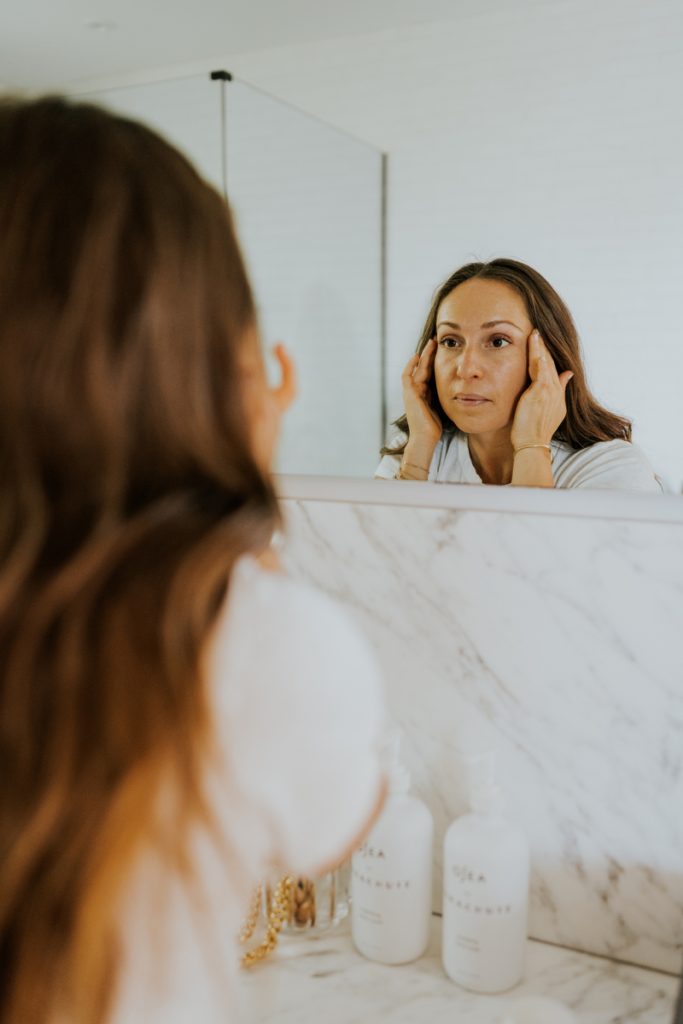
Do eye whitening drops work for red eyes caused by allergies?
Eye whitening drops may temporarily relieve red eyes caused by allergies by constricting blood vessels and reducing redness. However, they do not address the underlying cause of the allergic reaction and may not provide long-term relief.
How long does it take for eye whitening drops to work?
This can vary depending on the product and individual. Most eye-whitening drops generally work within a few minutes and the effect can last several hours.
Ingredients to Know
Ingredients can vary depending on the product, but most contain a vasoconstrictor as the active ingredient. Vasoconstrictors work by narrowing the blood vessels in the eyes, which can temporarily reduce redness and create a whitening effect. Some common vasoconstrictors in eye whitening drops include naphazoline, tetrahydrozoline, and phenylephrine.


Natural Alternatives
Several natural alternatives can help to reduce eye redness and improve overall eye health.
- Cold compress: Applying a cold compress to your eyes can help constrict blood vessels and reduce redness. Soak a clean cloth in cold water, wring out the excess water, and place it over your closed eyes for several minutes.
- Supplementing with hyaluronic acid preservative-free artificial tears in the morning and right before bedtime will keep the eyes moist and prevent redness of the eyes.
- Following the 20-20-20 rule when on the screen. Every 20 minutes, look 20 feet away for 20 seconds and blink.
- Good quality omega-3 is essential in producing good quality natural tears to keep our eyes moist and prevent redness.
Can eye whitening drops be used with contact lenses?
It depends on the specific eye whitening drop and type of contact lens. Some eye whitening drops may contain preservatives or other ingredients irritating the eyes or damaging contact lenses. In general, it’s best to remove contact lenses before using eye drops. Wait at least 15 minutes before reinserting them to allow the drops to be fully absorbed.
If you wear contact lenses and experience persistent eye redness or discomfort, it’s important to speak with your eye doctor to determine the underlying cause and appropriate treatment. Your doctor may recommend a different type of eye drop or treatment that is safe to use with contact lenses.

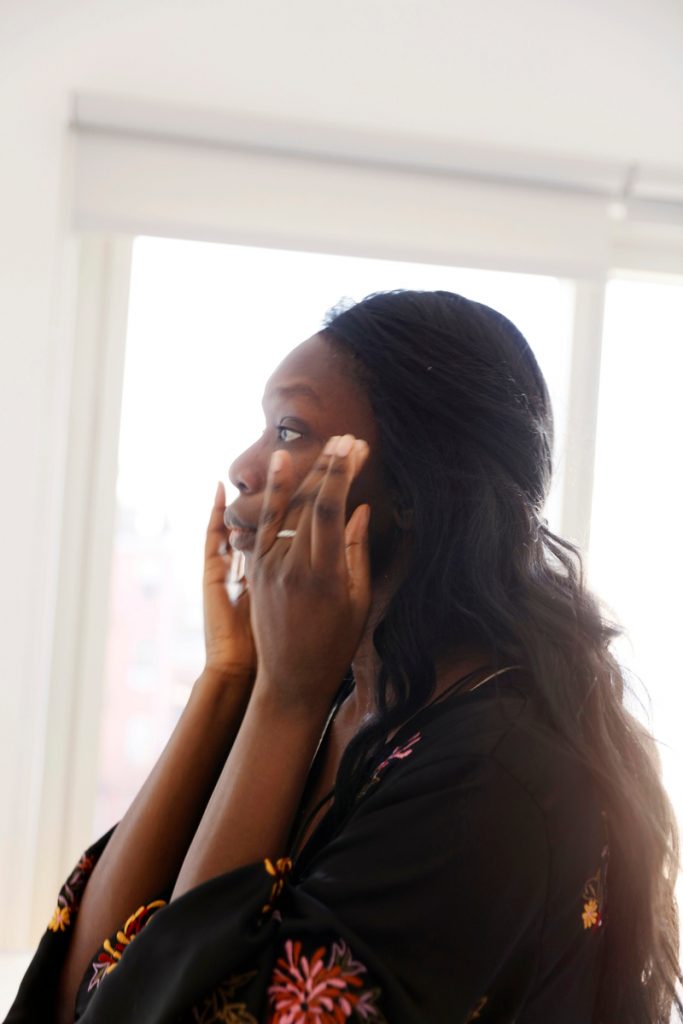
The Best Eye Whitening Drops
Know this: it’s difficult to determine the “best” eye whitening drops, as the effectiveness of eye drops can vary depending on the individual and the underlying cause of eye redness.
Best Optometrist-Recommended: Lumify Eye Drops
This is Dr. Lazar’s go-to recommendation to patients. “Lumify eye drops contain the active ingredient brimonidine, which works by selectively constricting the small blood vessels in the eye. This reduces the redness and makes the eyes appear brighter and whiter. It is a type of alpha-2 adrenergic receptor agonist, which means it stimulates certain receptors in the eye to produce the desired effect. Lumify eye drops are specifically formulated to be gentle and safe for use on a daily basis, as recommended by a doctor.”
Most Hydrating: Innoxa Blue Drops Hydrating Eye Lotion
Another eye-whitening favorite, this French pharmacy solution gives you dramatic results to soothe discomfort while whitening and brightening for a relieved and refreshing look.
Best for Seasonal Allergy Relief: Laiter Collyre Bleu Eye Drop
This eye drop solution is a favorite for whiter eyes. The drops address seasonal redness as well as any yellowness in your eyes. With just two drops, you can soothe, hydrate, and brighten your eyes all day long.
Best Natural Option: Wisdom of the Ages Eyebright Drops
Using the natural compound eyebright, this formula helps to reduce redness to naturally brighten your eyes.
Best for Sensitivity: Optrex Brightening Drops
This gentle solution instantly provides relief from dryness or irritation while giving your eyes a brighter, more open and awake look.
Best Tried-and-True Standby: VISINE Red Eye Comfort Eye Drops
According to Dr. Lazar, “Visine is a popular brand of eye drops that contains the active ingredient tetrahydrozoline, which works by constricting blood vessels in the eyes. Visine has been used for many years to reduce eye redness and improve overall eye appearance.” While this is a popular eye drop solution, it’s not recommended for overuse.
Best for Quick, Refreshing Relief: Rohto Optic Glow Eye Whitening Drops
According to Dr. Lazar, “Rohto eye drops contain a combination of active ingredients, including naphazoline and zinc sulfate, which work to constrict blood vessels and reduce eye redness. Rohto drops are also known for their cooling and refreshing effect on the eyes.” Again, this may be popular for quick relief, be cautious about how often you use it.




